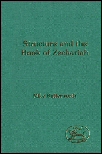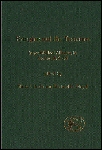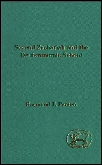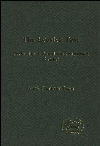Studies on Zechariah (4 vols.)
Digital Logos Edition
Overview
The book of Zechariah contains numerous references to the books in the Hebrew canon and without proper study the mention of them can cause confusion. Studies on Zechariah takes an in depth look at the allusions used in Zechariah 9–14 and brings to light the configuration of Zechariah and to clarify how its structure has a specific form which differs from the other canonical books.
The Evasive Text by Mark Cameron Love discusses the symbolism of Zechariah from a logistical standpoint and analyzes the logic that is a part of Zechariah 1–8. Also discussed is the postexilic-period in Raymond F. Person’s book Second Zechariah and the Deuteronomic School. He takes apart the idea that during the time of exile the Deuteronomic school came to an end. However, the Deuteronomic phraseology used in Zechariah could mean that the Deuteronomic school continued through the postexilic-period. Person inspects these two ideas, give a history of each and presents the result of his findings.
Utilizing the Logos Bible Software edition of Studies on Zechariah gives you easier access to the content of Zechariah and allows for side-by-side study of your resources that relate to Zechariah.

Key Features
- Contains a list of abbreviations used
- Each volume discusses each passage in depth
- Includes an index of References and Authors
Product Details
- Title: Studies on Zechariah
- Publisher: Sheffield Academic Press
- Volumes: 4
- Pages: 1,258
Individual Titles
- Structure and the Book of Zechariah, by Mike Butterworth
- Bringing out the Treasure, by Mark J. Boda and Michael Floyd
- Second Zechariah and the Deuteronomic School, by Raymond F. Person
- The Evasive Text, by Mark C. Love

This synthetic study has two primary tasks. The first is to elucidate the structure of the book of Zechariah. But in order to do this, a satisfactory method of analysis must be found. Thus the author begins by drawing up suitable literary criteria that will help to frame a reliable way of proceeding. The method is then tested on the book of Zechariah, and the results are compared with those of other biblical scholarship. Although this is a study in "rhetorical criticism" it approaches the text from the standpoint of the authors' and redactors' intentions. The result is a convincing and wide-ranging analysis of the various and complex structural patterns of Zechariah.
Mike Butterworth is Advisor for Open Learning at Trinity College Bristol. He is an Old Testament scholar who has had wide experience of extension education; he worked in India for many years with TAFTEE (The Association for Theological Education by Extension), as well as being in pastoral ministry.

It is generally agreed within Hebrew Bible scholarship that Zechariah 9–14 is filled with allusions to other books within the Hebrew canon. Rex Mason's doctoral dissertation in the early 1970s contributed significantly to the foundation of this consensus. However, although Mason's thesis remains a seminal work for those studying Deutero-Zechariah, it has never been published. This volume contains the first publication of that work together with reflections from leading biblical scholars who have published on Zechariah 9–14. The volume is rounded off with a response by Mason to these scholars and a reflection on his own contribution thirty years ago.
Mark J. Boda is a professor of Old Testament at McMaster Divinity College and professor in faculty of theology at McMaster University in Hamilton, Ontario, Canada
Michael Floyd is a professor at El Centro de Estudios Teológicos in Santo Domingo, Dominican Republic.

In Second Zechariah and the Deuteronomic School, Person concludes that the Deuteronomic school's redactional activity continued into the postexilic period. In Part I, he first critiques the commonly-held conclusion that the Deuteronomic school ceased in the Exile. He then presents evidence that suggests that the Deuteronomic redactions of the Deuteronomic History and Jeremiah continued into the postexilic period. This evidence is of two types: (1) Deuteronomic phraseology in the postexilic additions found in the MT and (2) the themes of return and restoration as vaticinia ex eventu. In Part II, the conclusion that the Deuteronomic school continued in the postexilic period is bolstered with additional evidence in the form of Deuteronomic phraseology in the redactional material of Second Zechariah. Adapting the methodology applied by J. Philip Hyatt and others to Jeremiah, Person argues that Zechariah was redacted by the Deuteronomic school with the addition of the Deuteronomic prose in Zechariah 9-14. In Part III, Person comments on the possible social setting of the Deuteronomic school in postexilic Yehud as well as its theology in this setting.
Raymond F. Person is Associate Professor of Religion, Ohio Northern University.

This work employs an eclectic mix of structuralist and post-structuralist theories in a doomed attempt to discover the symbolic logic at work in Zechariah 1–8's surreal narrative world. Lengthy analyses of Zechariah's intra- and intertextual logic, or lack thereof, are presented. It is finally concluded that Zechariah lacks a concrete symbolic logic, defies grammatical conventions and is “unreadable” as it stands - and always was this way. One suggestion is that it was the intent of the author, conceived of in a postmodern way, to produce such a work. It is finally concluded that the “post-prophetic” age of Hebrew literature has much in common with the postmodern.
Mark Cameron Love is Assistant Professor of Euro-American Studies, Gachon Medical School, Incheon, Korea.
This title is included in the following collections
You can save when you purchase this product as part of a collection.
Logos 8 Messianic Jewish Diamo...
$2,999.99$2,999.99Verbum 8 Diamond Legacy Librar...
$2,999.99$2,999.99Logos 9 Messianic Jewish Diamo...
$2,999.99$2,999.992025 Verbum Portfolio Library
$4,749.99$3,324.99
- $4,749.99$3,562.49
- $4,749.99
- $4,749.99
- $4,999.99
- $7,749.99
- $7,749.99
- $23,999.99$17,999.99
- $21,749.99
- $24,999.99
Reviews
3 ratings

Goran Zivkovic
2/22/2017

Chan Yew Ming
10/8/2016

Pedro J Martinez
10/29/2014